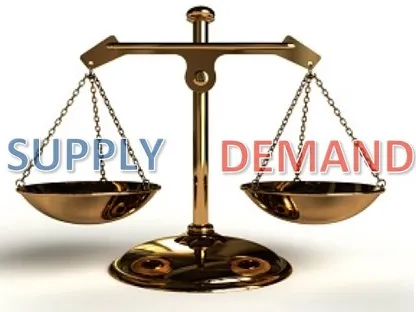
I've been trying to explain my idea for a reputation system on the Steem blockchain but everyone asks how it won't be overtaken by bots.
Basically, every account gets a say of who they trust. If someone you trust then trusts someone else within the system, that information is broadcasted to the network and you'll be able to use that data to expand your trust network.

So, take the situation where one person creates a thousand bots that trust himself. This doesn't get the botter anywhere because no one trusts the bots. He's back at square one trying to get the accounts that matter to trust him. The intention of the entire system is to create incentives where your reputation is worth more than what you can gain by cheating the system. (Just like proof-of-work coins.)
In order for trust and reputation to be earned within this distributed system, someone in your network has to trust the person in question. However, how much you trust someone in your network depends on a lot of variables. For example, you might be very willing to trust the judgement of say 10 or 20 accounts on Steem, but are you willing to trust the accounts who those people trust? Maybe. Maybe not. It all depends on how the individual's user configuration is set up to handle diminishing returns down the line. Each leap makes a big difference.
I haven't even started trying to program this reputation system because in order to have value a lot of people need to be using it all at the same time. Therefore, I'll have to make something useful to bootstrap the project; something that gives the project value before the network effect kicks in.
As of now I'm looking at custom (distributed) trending tabs and peer to peer vote buying/selling. These two issues are the real crux of the Steem platform. Steemit's poor trending tab creates the demand to buy votes for more than they are worth for very little payoff; leeching the system. I don't see the other frontends stepping up to this challenge either to make better trending tabs.
As I side note, I think it's obvious that ad revenue should also be shared with content creators. The platform becomes outward facing when content creators have a financial incentive to bring in communities from outside the cryptosphere.

By creating demand to buy votes and then monopolizing the market with centralized bid-bot services this platform is being a bit taxed, and everyone complains about it. I would say it's not a big of a deal as people make out, but it obviously is a problem.
The solution isn't to double down on curation, create a new downvote pool out of thin air, and manipulate the reward curve to punish low vote posts/comments. The solution is and always has been to decentralize the process of vote buying/selling and create custom trending tabs.
It's actually a little bit embarrassing that Steemit Inc hasn't allowed people to buy/sell upvotes directly on the internal market. Clearly, there is great demand for that service. Ironically, the demand is created by Steemit itself, but they somehow refuse to create the market that they themselves produced the demand for.
Instead, they are allowing the big players of Steem to run exploitative bots that siphon inflation in a centralized manner. Why hasn't this obviously trivial process been decentralized yet? It's the same kind of liquidity issue as buying and selling crypto directly.
So, I've said this a few times... I'd like to create a decentralized way to buy/sell votes. One with a free market. One where anyone on Steem can theoretically make a profit instead of just the bid bot owners.

In relation to the reputation system I want to make: Say level 0 is the baseline. Everyone starts at level 0 by default. Everyone who you follow gets promoted to level 1 by default. Now, lets say you want to make a contract that allows level 2 users on your list to buy your vote at a discount. Say you demote someone to level -1 for whatever reason. People in this category would have to pay you more to buy your vote.
This is just one application of the distributed rep system. The reputation can also be used to create the custom trending tabs. Currently, trending tabs only use two variables: payout amount and time. The higher the payout and lower the time the more "points" the post has and the higher it appears on the trending tab.
Well, what if you start using more information to filter your trending tabs? What if people start sharing a blacklist of accounts that allow their vote to be sold to posts that we don't want to see anymore? What if accounts on our whitelist start counting for double or triple their original value? These are the kinds of things we should be tinkering with on the platform, and they are completely permissionless.

What happens when a vendor selling a product pays confirmed buyers to give them a five star review? The users give the five star review. Why wouldn't they? With decentralized reputation you can hold accounts responsible for the reviews they make.
You told me XYZ was a good product. It was garbage.
Now reviewers have a real reason to not sell out.
They're being held accountable because if they give a bad review their own reputation will be affected.
They actually have something to lose.
And that's what reputation is supposed to be all about. Finding trustworthy people and holding bad actors accountable. I search far and wide on this platform, and I see no one working toward these goals.
That's why I've taken such a big risk on PALNet. If I can bring some value to this network it won't matter if the products that I create generate direct income or not. If we all do our jobs properly, everyone should benefit the entire ecosystem. Synergy and network effect reign supreme in the cryptosphere.